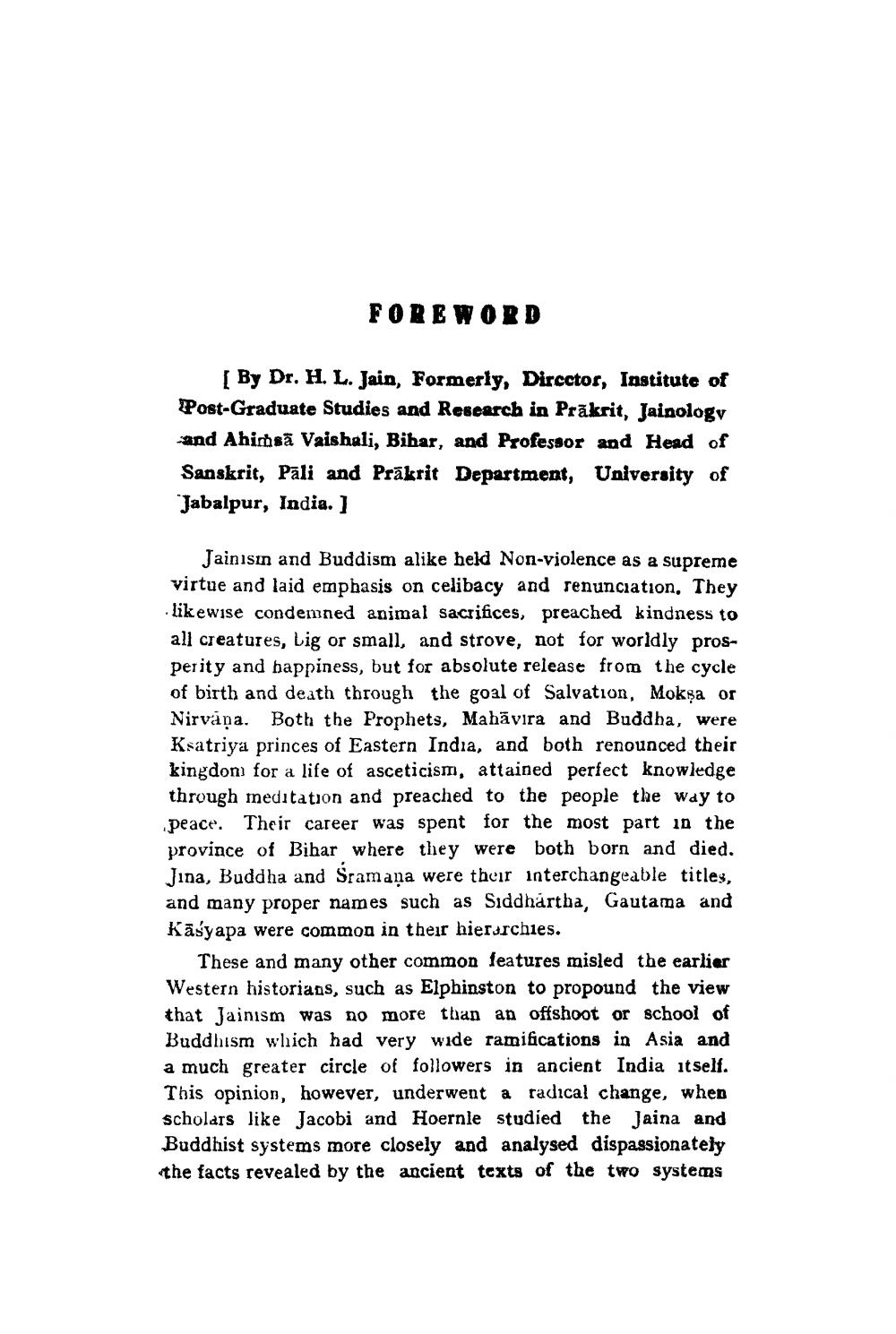Book Title: Jainism in Buddhist Literature Author(s): Bhagchandra Jain Bhaskar Publisher: Alok Prakashan View full book textPage 6
________________ FOREWORD [By Dr. H. L. Jain, Formerly, Director, Institute of Post-Graduate Studies and Research in Prakrit, Jainology and Ahimsā Vaishali, Bihar, and Professor and Head of Sanskrit, Pāli and Prākrit Department, University of Jabalpur, India. ] Jainisin and Buddism alike held Non-violence as a supreme virtue and laid emphasis on celibacy and renunciation. They · likewise condemned animal sacrifices, preached kindness to all creatures, Lig or small, and strove, not for worldly prosperity and happiness, but for absolute release from the cycle of birth and death through the goal of Salvation, Moksa or Nirvāṇa. Both the Prophets, Mahāvira and Buddha, were Ksatriya princes of Eastern India, and both renounced their kingdon for a life of asceticism, attained perfect knowledge through meditation and preached to the people the way to peace. Their career was spent for the most part in the province of Bihar where they were both born and died. Jina, Buddha and Sramana were their interchangeable titles, and many proper names such as Siddhartha, Gautama and Kāsyapa were common in their hierarchies. These and many other common features misled the earlier Western historians, such as Elphinston to propound the view that Jainism was no more than an offshoot or school of Buddhism which had very wide ramifications in Asia and a much greater circle of followers in ancient India itself. This opinion, however, underwent a radical change, when scholars like Jacobi and Hoernle studied the Jaina and Buddhist systems more closely and analysed dispassionately the facts revealed by the ancient texts of the two systemsPage Navigation
1 ... 4 5 6 7 8 9 10 11 12 13 14 15 16 17 18 19 20 21 22 23 24 25 26 27 28 29 30 31 32 33 34 35 36 37 38 39 40 41 42 43 44 45 46 47 48 49 50 51 52 53 54 55 56 57 58 59 60 61 62 ... 326
